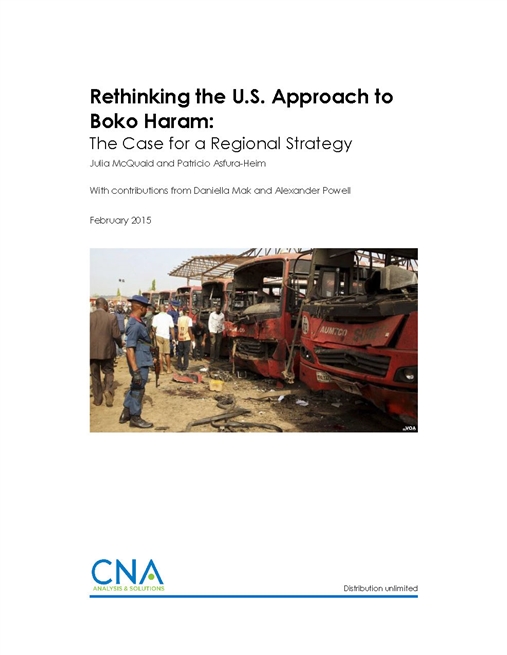United States Africa Command (AFRICOM) has responsibility for advancing U.S. national interests and promoting regional security and stability in Africa. Today, violent extremist organizations (VEOs) are among the greatest threats to the future of Africa and to U.S. interests on the continent. Over the past year, the Nigerian Islamist militant group Boko Haram has emerged as the most aggressive and virulent of all the African VEOs. In April 2014, it became a global household name after it kidnapped over 200 schoolgirls from the northern town of Chibok. Over the course of 2014, over 5,000 people were killed in Boko Haram related violence as the group demonstrated new, more deadly tactics in order to maximize casualties.
Nigeria is among the United States’ top partners in Africa, and its continuing stability is critical to the future of U.S. interests on the continent. So far, the government of Nigeria (GoN) has failed to effectively address the conflict with Boko Haram. In recent years, through a variety of diplomatic, development, and security assistance efforts, the U.S. government (USG) has worked with the GoN in a supporting role to dismantle the group. Despite these efforts, however, a balanced assessment of the situation in northeast Nigeria reveals that the threat from Boko Haram is growing. There are now regular reports that Boko Haram has taken control of sizable territories where it forces its own brand of Islamic law on local communities. In addition, Boko Haram now conducts incursions across Nigerian borders into Cameroon, and Nigeria’s other neighbors—Chad and Niger—are being increasingly affected by the mounting humanitarian crisis caused by the violence in northern Nigeria.
In 2014, U.S. Naval Forces Africa (NAVAF) was tasked to develop a supporting plan to U.S. Africa Command’s (AFRICOM) Gulf of Guinea campaign plan. In this role, the command requested that CNA conduct a study and recommend a way forward for the USG in its efforts to counter Boko Haram. The results of the study are intended for AFRICOM and its subordinate commands, but are applicable to all USG entities that contribute resources to countering Boko Haram. Below are our major findings.
Download reportDistribution unlimited.
Details
- Pages: 88
- Document Number: DRM-2014-U-009462-final
- Publication Date: 3/27/2015
